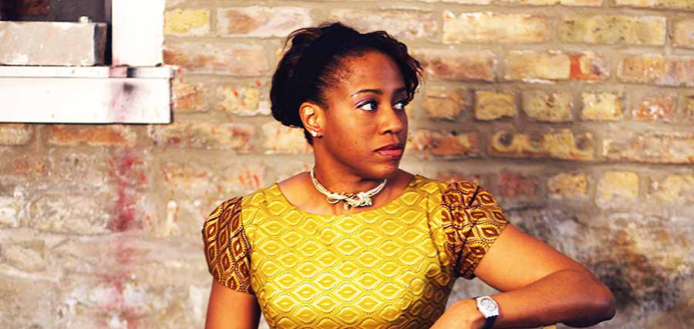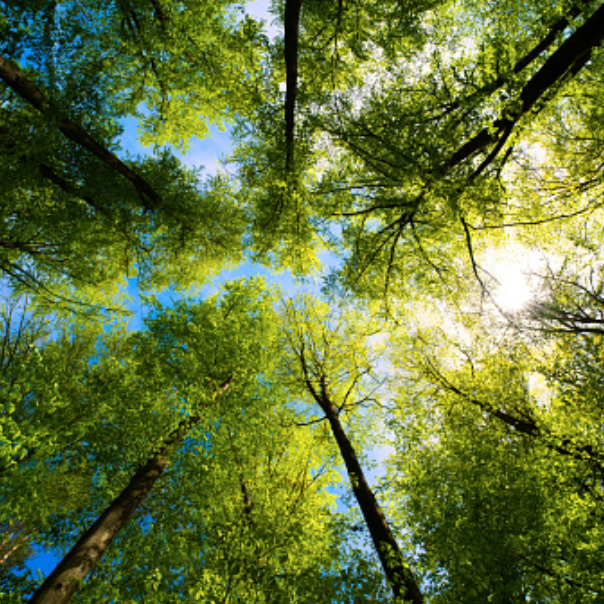THIS WEEK’S MUSE

NNENNA OKORE
“My inspirations derive from varying organic forms in nature”
To call Nnenna Okore just a sculptor—as she is often described— does something of a disservice to an artist, educator and environmentalist whose artistic output and social philosophy embody a wider and more complex remit than this label implies.
Orkore was born in 1975 on Thursday Island—pleasingly situated between Wednesday and Friday Islands—off the northern coast of Australia, but grew up in Nsukka, Nigeria after her parents returned home to teach at the university. Here Okore was surrounded by creative inspiration and her love of art flourished in the colorful natural landscapes and busy streets of her home. Pottery, sewing, crochet, knitting, painting, and printmaking were an everyday part of her upbringing.
This colorful and socially vibrant setting—the streets and buildings, the people and life within—embody how she approaches her work. The material continuity instilled in her the inspiring notion that anything and everything could be used and reused. Introducing discarded materials into her art seemed, therefore, a natural approach and as a result nontraditional items began to appear on her canvases. Leaves, paper, wood, jute, cloth, sticks, shredded photographs, plastics, glass, rope, coffee, and clay; they all formed and informed her visual language.
The result is something remarkable. Up close, the viewer sees flotsam; pieces of discarded, unwanted human material waste or decaying plant matter. But after she has twisted and teased, tied and woven, stitched and stuck these unrelated things together, there is a transformation. Now the once incongruous items are beautifully unified into a new whole. Not only is the material itself morphed, but meaning has been renewed. This provokes emotion and perfectly resolves the brief tension between old objects and new ideas. And while the effect can be subtly surprising, it is often warmly poetic and deeply satisfying.
This creative approach also serves to endorse two recurring themes central to Okore’s work. The fragility of life and the universality of aging, death and decay; something we constantly face, individually and collectively. This connects with the manmade waste that is threatening to overwhelm our cultural and natural environments. The theme of recycling is familiar thread running through Okore’s work; she sees her art as her way of being a part of the climate conversation. Using, for example, plastics in her work to contrast the organic materials and the traditional practices she employs like weaving, her ambition is to “show the hybridity of not only the material but also the increasingly unnatural world it came from.” Okore has received international acclaim for the way in which her approach engages with environmental challenges and her use of found materials speaks to the problem.
“[I am] especially captivated by the ephemeral passage of time,” she said. “My work seeks to highlight Earth’s vulnerability and fragility.”
She regularly travels home to Nigeria, refreshing her roots and drawing energy from those inspiring environments of her childhood. Home is now the US, but here she uses the same philosophy of her youth, to draw on the colors, people, and environment she finds herself within.
“I am a fan of color, especially loud earthy tones such as red, orange, ochre and yellow. Color gives character to my work.”
HAPPENING
Tuesday, October 18, from 10–11am

COFFEE & MOTHER EARTH: TREES FOR 2023.
NOW IS THE TIME TO PLANT FOR NEXT YEAR!
With Priscilla Husband
A lively introduction to trees that bring color into the gardens.
$14 – Member, $16 – Non-Member
DETAILS & TICKETS
